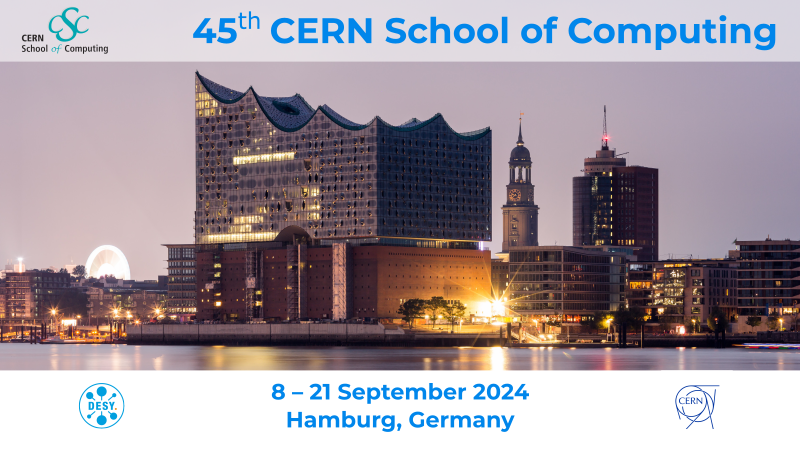CERN School of Computing 2024
Building 1b SR4a/b
DESY
Welcome to the 45th CERN School of Computing (CSC 2024)
The school will take place between the 8th-21st September 2024 in Hamburg, Germany. This year’s School is organized in collaboration with the Deutches Elektronen-Synchroton (DESY) and the event will be hosted at the DESY campus in Hamburg.
Academic Programme
The two-week programme will consist around 50 hours of lectures and hands-on exercises, covering three main themes: physics computing, software engineering, and data technologies. Students who pass the final optional exam will receive a diploma from the CSC, as well as ECTS credits.
Other activities
However, it's not all study; the social and sport programme is also a vital part of the School. We will have ample opportunities to explore and experience some of the great cultural, historical and natural attractions of Hamburg and its surroundings.
The application for this school is now closed!
Important dates
- Wednesday 14th of February - applications open
- Monday 15 April (midnight UTC+2 / CEST) - extended deadline for applications
- Monday 29 April - invitations sent to the selected participants
- Wednesday 29 May - registration fee payment deadline
- Sunday 8 September (afternoon/evening) - student arrivals at DESY, Hamburg
- Saturday 21 September (morning) - departure
Who can apply?
The School is aimed at postgraduate (ie. minimum of Bachelor degree or equivalent) students, engineers and scientists with a few years' experience in particle physics, in computing, or in related fields. We welcome applications from all countries and nationalities. Applicants are responsible for ensuring that their registration fee and travel cost is covered by their home institute or employer, or, failing this, themselves.

